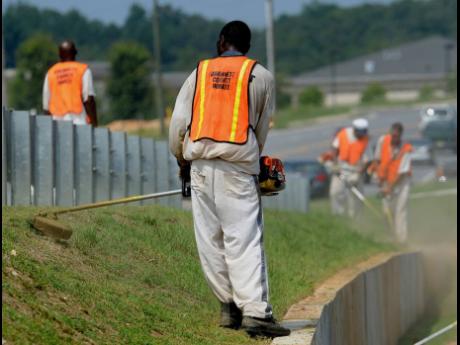Prisoners can be a resource
It is time to re-examine the message we are currently sending to and about some of the most vulnerable members of our society through the prison food system.
Food is an integral part of our human existence. It nourishes us, communicates who we are, our relationships, and reflects our values.
A recent report in the media outlined figures showing that in 2020, it cost J$13,000 to feed one inmate per month, and the island’s prison population currently amounts to 3,700.
The media reported figures reflecting over $500 million spent in the financial year on food for prisoners. However, the Department of Correctional Services (DCS) quickly denounced the incorrect narrative and called for a better approach to provide healthier options to feed the inmates.
For people who are incarcerated, the unhealthy, unappetising, and often inedible food in prison robs them of dignity, humanity, and health. We have seen reports where food is being wielded as a further form of punishment. This can be linked to chronic illnesses such as diabetes and hypertension, which also have adverse impacts on their lives long after their re-entry into the community.
PRISON LABOUR
It is no secret that feeding prisoners has been a vexed issue for Jamaicans over the years, and most, if not all, may think that the inmates should work to pay their debt to society and feed themselves.
This vexed issue is one that has a solution. Our government should pay more attention to how the rehabilitation of our prisoners can contribute to some aspects of our society economically.
Prison labour is common across the world, and it has shown remarkable results. There have been calls for a better rehabilitation system in Jamaica in an effort to address the issue of recidivism.
Without proper rehabilitation, Jamaica will continue to face the crime crisis we face today. As a society, we need to address the culture where we believe that criminals cannot be rehabilitated. This mindset makes returning to normal society an uphill task. Maintaining prison labour that gives prisoners jobs helps them to earn to fund their prison stay and also gives them skills in finding legitimate work upon release.
The Department of Corrections (DCS) says there are agricultural programmes in place at some local prisons that need attention to help the situation and lessen the food cost. They reported that chicken meat production at the Tamarind Farm Adult Correctional Centre has led to savings of approximately $20 million. The DCS says that with the slow return to normalcy in recent times, farming has been resumed for many different products.
It is impossible to discuss prison labour without acknowledging the deep ties the criminal justice system has to the legacy of slavery. Targeted mass incarceration policies, racial bias, and other structural disadvantages have led to an over-representation of black people in prisons and jails across the world.
TREAT PRISONERS LIKE PEOPLE
As an activist and author, Shaka Senghor notes in Ava DuVernay’s 2016 documentary 13th, “The 13th amendment says ‘no involuntary servitude except for those who have been duly convicted of a crime.’ So once you’ve been convicted of a crime, you are in essence a slave of the state.”
Though we run the risk of stating the obvious, there is a clear solution available: treating prisoners like people rather than chattel. Paying prisoners a stipend wage for their work and making sure the employment options in prison are designed to help people transition into their communities once they are released.
Apprenticeship programmes, which provide paid training that combines on-the-job learning with classroom instruction, may be the perfect solution. These programmes can equip inmates with marketable skills, a wage, and a credential that holds value in the labour market and can help them get a job upon release.
A recent Center for American Progress report suggests using paid apprenticeships during incarceration to help inmates and their families support themselves after incarceration and reduce recidivism.
The criminal justice system has historically relied on a system of punishment and exploitation instead of rehabilitation, but we can change this going forward.
Treating incarcerated people like human beings by giving small incentives for their work is a good place to start.
- Maria Carla Gullotta is the executive director of Stand Up for Jamaica. Email feedback to standupforjamaica02@gmail.com and editorial@gleanerjm.com.

